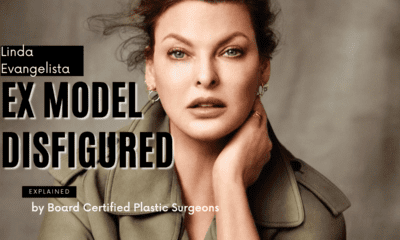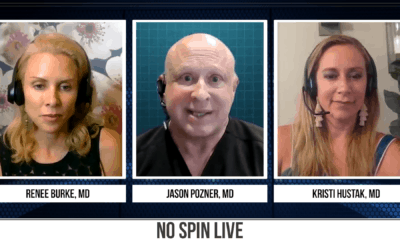One of the top reasons for someone to travel outside of the United States is to seek a cosmetic procedure in another country. However, the money that can be saved having an aesthetic procedure in a country, such as the Dominican Republic, is not worth the price, which sometimes is life.
In recent news, a man died on the operating table in the DR after undergoing a body contouring procedure. While dying on the table in the OR is an extreme example, numerous complications can arise during surgery that exponentially increase the cost of the surgery. Dr. Guarav Bharti of Charlotte, NC and Dr. Ashley Gordon of Austin, TX join No Spin Live host Dr. Jason Pozner of Boca Raton, FL to discuss this alarming trend and how patients can protect yourself.
Board Certification & Accreditation Are Crucial
Patients are having surgery in the Dominican Republic and some are paying with their lives. A recent story focused on the death of a man who went to the DR for a body contouring procedure. The thought is that he was looking to save money, as the procedure is considerably cheaper there than in the United States. Sadly, the man went into cardiac arrest on the table and never awoke, more than likely due to an inadequate response to a complication that can happen anywhere.
“Nobody really knew what to do and I think that’s why it’s obviously important that you seek the advice of a Board Certified Plastic Surgeon,” shares Dr. Gordon. Additionally, patients needs to “have [their] procedure done in an accredited facility where not only is the surgeon trained, but everyone there is trained in emergency.” Complications do not happen often in the hands of a qualified plastic surgeon, but they do happen.
When they do occur, the surgeon and their team are trained and ready to deal with it. In other countries where accreditation and training may not be as comprehensive, that surgical team may not be prepared to deal with an emergency situation. It is thus paramount to see a surgeon who knows how to handle complications and who surrounds his or herself with a team that is trained to deal with emergencies. Most of the time, this means spending more money than a patient might with a medical tourism procedure in the Caribbean.
The long and short? Safety is worth paying a bit extra for.
Patient Safety is Paramount
Dr. Bharti agrees, saying that the event “was likely preventable.” Any board certified plastic surgeon is the United States would have been able to deal with this terrible complication, or at least been able to do everything possible to solve it. “It just hurts because we want our patients to be safe,” shares Bharti.
One of the ways in which you can help to ensure your own safety is to do the research. Investigate your chosen surgeon’s credentials and surgical history. Ask whether:
- He or she has had any patients who have died?
- Is there a protocol in place if something goes wrong?
Patients are investing a lot of your time and money into their chosen procedure. Make sure that you are actually going to be alive to enjoy your savings. “Patients have to be more aware of the bad things that can happen when you cut corners,” explains Dr. Bharti.
Make Sure your Surgeon is Actually a Plastic Surgeon
“Patients have to understand that just because someone says that they are a plastic surgeon or a cosmetic surgeon does not mean that they are qualified,” says Dr. Gordon. In fact, it doesn’t even guarantee that the person is actually a plastic or cosmetic surgeon. Apparently, the surgeon in the recent Dominican Republic story was a gynecologist. Furthermore, this surgeon had multiple deaths on his record.
There are not always the same protocols in place for checking out the credentials of your prospective surgeon in another country like there are in the United States. This is another reason why it is not a great idea have your work done outside of the country. In this instance, asking whether the surgeon was qualified to perform plastic surgery and whether or not patients had died in his OR could have made all of the difference. Sadly, the patient may have only been concerned with the steep discount offered.
It’s NOT About Price
Dr. Pozner believes that one of the important things that a patient should ask his or her potential doctor during the consultation is whether or not the surgeon has hospital privileges. “God forbid, if there was an issue, where do we go? What happens?” he asks. If the surgeon can not answer these simple questions readily and easily then you should question the quality of care that you are going to receive.
It’s up to plastic surgeons to help educate the patientsut, b it’s up to the patients to do their homework. “It’s not about price,” says Dr. Bharti. No amount of money saved is worth losing your life, so take the time, and make sure that you are seeing someone who is going to take good care of you.



















Facebook
Twitter
Instagram
YouTube
RSS